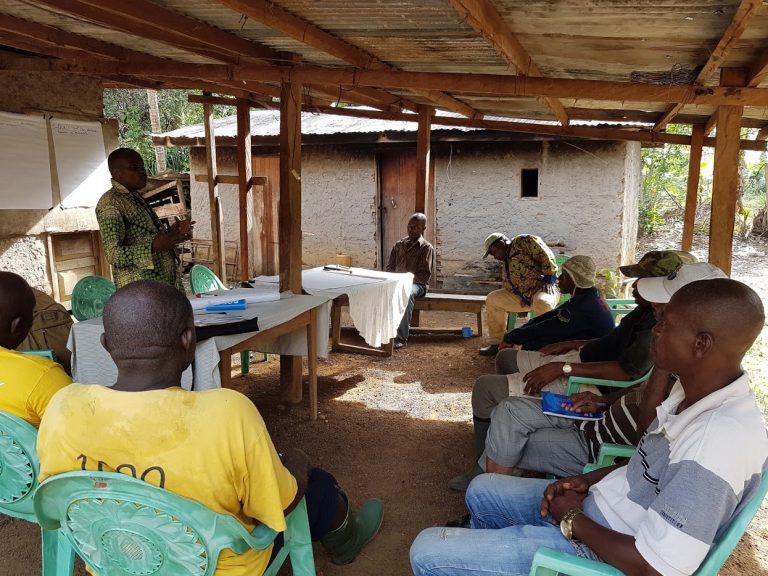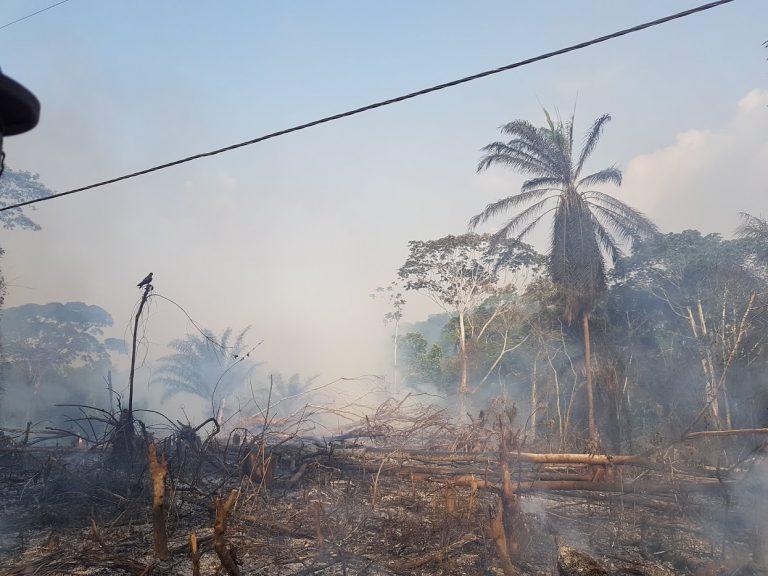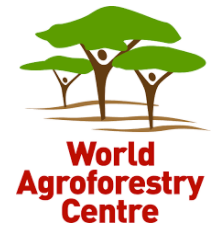Synergizing Climate Change Mitigation and Adaptation in Cameroon
Cameroon needs to adopt an integrated approach to climate change. However, there are still many challenges to overcome.
by Ruth Ogendi
Climate change in Cameroon has had, and will continue to have, adverse effects on agro-ecosystems and communities in multiple ways; with negative consequences dominating. Thus, the question we should ask ourselves is not whether the climate will change, but rather how we should respond.
The Government of Cameroon has identified two possible responses. First, mitigation aimed at reducing the sources of emissions and/or enhancing sinks of greenhouse gases. Second, adaptation aimed at moderating harm or exploiting beneficial opportunities. A synergy of both would have the greatest benefit. According to the Intergovernmental Panel on Climate Change, “synergy” refers to the “intersection of adaptation and mitigation so that their combined effect is greater than the sum effect if implemented separately”.
To assist Cameroon create an effective synergy, a research team consisting of Peter Minang, Lalisa Duguma and Zac Tchoundjeu of the World Agroforestry Centre (ICRAF), Dieudonne Alemagi of FOKABS Inc, Anderson Kehbila of the International Institute of Tropical Agriculture (IITA), the CGIAR Forests, Trees and Agroforestry flagship project for climate change adaption and mitigation and consultant Faith Ngum, analysed the policies, institutional arrangements and projects already undertaken at various levels in the country to address climate change.
State and non-state institutions were surveyed using a qualitative approach to understand how the synergy of mitigation and adaptation could be achieved. Most respondents stated that financial incentives were necessary to move toward an integrated approach and that existing resources were inadequate. Other barriers to synergy included a lack of coordination, insufficient sensitization and capacity, ineffective implementation, weak compliance, lack of proper transparency and little public participation.
Overall, respondents were of the view that sensitization, education and training, promotion and financing of demonstration projects, knowledge generation, effective implementation of laws and policies, data sharing, collaboration between sectoral administrations and other parts of the populace, and financial support to the private sector should be undertaken to effectively address climate change.
The team’s analysis also found that although policies, laws, strategies and institutional arrangements for an integrated approach to climate change were insufficient, some promising projects and activities did exist.
To address the barriers to synergy of climate change responses, the team recommended that 1) A national technical committee be established to provide scientific guidance to the Government; 2) Funding from ministries and international organizations should be committed for joint mitigation and adaptation projects; 3) Private sector investment should be facilitated considering that the sector has expressed willingness to engage; 4) Effective and creative community awareness and enforcement programs should be developed and integrated with mass media coverage to communicate clear messages about the need for both adaptation and mitigation; 5) Groups with specific interests should be involved in joint decision-making at all stages and various aspects of mitigation and adaptation projects; 6) Networks and partnerships should be created and knowledge shared among countries in the design and implementation of integrated strategies; and 7) Build capacity and opportunities to create the necessary knowledge base, institutional capacity and sectoral collaboration to guide the economy along low or zero-emission pathways.
Read the research
Ngum F, Alemagi D, Duguma L, Minang PA, Kehbila A, Tchoundjeu Z. 2018. Synergizing climate change mitigation and adaptation in Cameroon: an overview of multi-stakeholder efforts. International Journal of Climate Change Strategies and Management https://doi.org/10.1108/IJCCSM-04-2017-0084.
About World Agroforestry Centre
The World Agroforestry Centre is one of the 15 members of the CGIAR, a global research partnership for a food-secure future. We thank all donors who support research in development through their contributions to the CGIAR Fund



